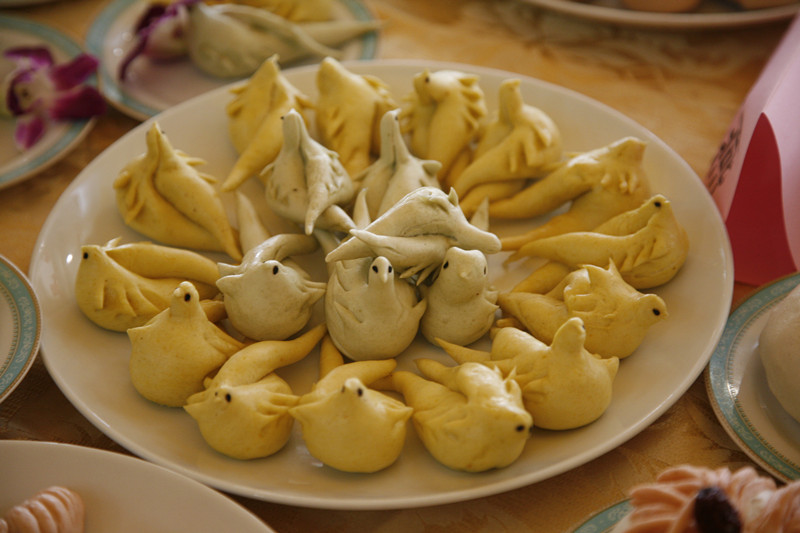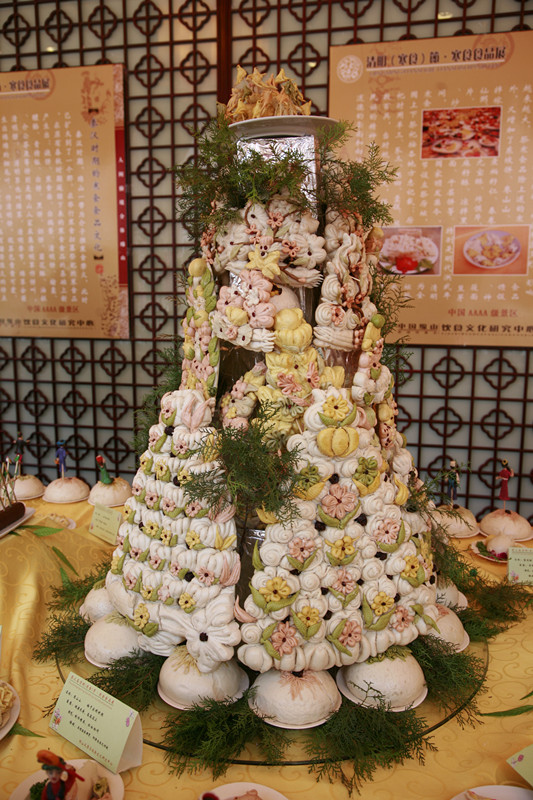

In 636 BC, Duke Wen, a ruler of the Jin State in ancient China, forbade, in commemoration of his virtuous official Jie Zitui, all households from using fire for cooking on the anniversary of Jie's death, which falls 105 days after the arrival of winter and one day earlier than the Qingming Festival proper. Over time, it became customary to have certain kinds of cold food on this occasion, known as the "Hanshi Festival", or the Cold Food Festival.
 |
| Cold Food: Zitui Swallow (Photo/China Daily Guizhou Office) |
In ancient times, the most popular foods for the Cold Food Festival were porridge and noodles, along with cakes, molasses, pulped grains and blueberry leaf juice-soaked glutinous rice. The drinks included spring water (crisp and sweet), tea (made with freshly-picked young leaves) and wines (brewed since last winter for spring consumption). While apricot pulp and the porridge cooked with peach petals were among the royal festival gifts, fine barley, paste in the image of a rabbit (symbolic of Jie Zitui, the filial son) intertwined with a snake (symbolic of his loving mother) and date-stuffed cakes were used for ancestral offerings.
 |
| Cold Food: date-stuffed cakes (Photo/China Daily Shanxi Office) |